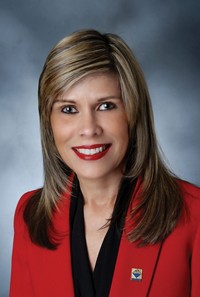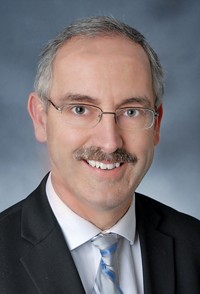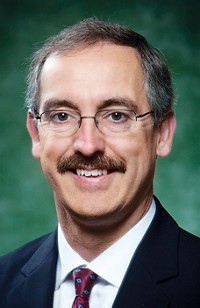Advertisement
Grab your lab coat. Let's get started
Welcome!
Welcome!
Create an account below to get 6 C&EN articles per month, receive newsletters and more - all free.
It seems this is your first time logging in online. Please enter the following information to continue.
As an ACS member you automatically get access to this site. All we need is few more details to create your reading experience.
Not you? Sign in with a different account.
Not you? Sign in with a different account.
ERROR 1
ERROR 1
ERROR 2
ERROR 2
ERROR 2
ERROR 2
ERROR 2
Password and Confirm password must match.
If you have an ACS member number, please enter it here so we can link this account to your membership. (optional)
ERROR 2
ACS values your privacy. By submitting your information, you are gaining access to C&EN and subscribing to our weekly newsletter. We use the information you provide to make your reading experience better, and we will never sell your data to third party members.
Elections
For District II director: Marcy Towns
by Marcy Towns, candidate for District II director
September 9, 2022
| A version of this story appeared in
Volume 100, Issue 32

Purdue Section. Purdue University, West Lafayette, Indiana.
Academic record: Linfield College, BA, 1985; Purdue University, MS, 1990, and PhD, 1994.
Honors: ACS Outstanding Service to the Division of Chemical Education Award, 2020; ACS James Flack Norris Award for Outstanding Achievement in Teaching Chemistry, 2017; ACS Award in Research for the Teaching and Learning of Chemistry, 2017; ACS Fellow, 2012; Royal Society of Chemistry (RSC) Nyholm Prize for Education, 2019; RSC Fellow, 2019; International Union of Pure and Applied Chemistry (IUPAC) Distinguished Women in Chemistry or Chemical Engineering Award, 2021; American Association for the Advancement of Science (AAAS) Fellow, 2009; Linfield Distinguished Alumni Award, 2015; Society for College Science Teachers Outstanding Undergraduate Science Teacher Award, 2015; Purdue University: Morrill Award, 2021; Most Distinguished Faculty for Academics, 2021; Book of Great Teachers, 2019; Jefferson Award (Multiplying Good), 2019; Distinguished Women Scholars, 2017; Special Boilermaker Award, 2016; Class of 1922 Outstanding Innovation in Helping Students Learn Award, 2015; College of Science Diversity Award, 2015; Charles B. Murphy Outstanding Undergraduate Teaching Award, 2013; Arthur Kelly Outstanding Undergraduate Teaching Award, 2013, 2022; College of Science Leadership Award, 2013; Teaching Academy Fellow, 2009; Learning Community Ambassadors Advocate Award, 2006.
Professional positions (for the past 10 years): Purdue University, Bodner-Honig Professor of Chemistry, 2020, professor of chemistry, 2012–20.
Service in ACS national offices: National Awards Committee, member, 2016–17, chair, 2018–20.
Service in ACS offices: Division of Chemical Education: chair succession, 2016–14; alternate councilor, 2000–02; Biennial Conference on Chemical Education, general chair, 2022, organizing committee, 2006; Exams Institute Board of Trustees, member, 2002–10; Examinations committees membership: ACS Diagnostic for Undergraduate Chemical Knowledge, 2006–08; Blended General Chemistry, 2003–05; Physical Chemistry, 2001–05; Second Semester General Chemistry, 1996–98; Strategic Planning Committee, 2007; Committee for Personnel and Nominations, 2007–12; Program Committee, 1999–2001; Chemical Education Research Committee, 1998–2004.
Member: Member of ACS since 1987. IUPAC, RSC, AAAS. ACS Divisions: Chemical Education; American Association of Chemistry Teachers (AACT).
Related activities: Journal of Chemical Education, associate editor, 2012–20, acting editor in chief, June–Aug. 2016; National Academies of Sciences, Engineering, and Medicine Board on Science Education, member, 2019–22; IUPAC Committee on Chemical Education, 2014–21; IUPAC Interdivisional Committee on Nomenclature, Terminology, and Symbols, Mole Committee, 2018–22; Gordon Research Conference on Chemistry Education: Research and Practice, chair, 2011, vice-chair, 2009; Chemistry Education Research and Practice, Editorial Board, 2010–14; Linfield University Board of Trustees, 2020–; Children’s Museum of Indianapolis Eli Lilly and Company Girls and Young Women in STEM, Advisory Committee, 2020–21; Transforming Research in Undergraduate STEM Education Conference, principal investigator, 2010, 2012, co-principal investigator, 2017; more than 115 publications (two ACS Editor’s Choice).
Towns’s statement
I have been an American Chemical Society member since 1987, when I was a high school chemistry and mathematics teacher in Oregon. Across my career, first as a high school teacher, then as a graduate student, and then in academia, ACS has provided opportunities to share scholarship and innovation, to support and drive forward education in chemistry in K–16 classrooms, and to engage the public in the learning of science. The personal and professional network created through the membership of ACS allows us the opportunity to collaborate and innovate, to mentor, and to advance the field of chemistry. The opportunity to serve the membership and to be a leader in the most disruptive time that the field has experienced is what has inspired me to volunteer to run as a nominee for District II director.
The COVID-19 pandemic has created new challenges for ACS that can be addressed leveraging the breadth of expertise this professional society possesses. Chemistry education stands out as one of the most critical priorities as we respond to the needs of students who will be the chemical professionals of the future. ACS has supported members with programming and platforms to share ideas and information about the challenges and opportunities of operating in this environment. For example, I have used resources and webinars from the AACT in our general chemistry program to support and sustain student learning during the pandemic. Continuing to support the society’s efforts in this space is of the utmost importance. These actions support our members and are at the heart of creating value for members engaged in education.
Education and professional development challenges that have been deepened by the pandemic are also related to the promotion of diversity, equity, inclusion, and respect. The pandemic’s disruption to education has laid bare the inequities in the educational systems and has had differential impact on students, parents, teachers, and administrators, depending on the district in which they reside. In the recently published Call to Action for Science Education: Building Opportunity for the Future, by the National Academies, it is noted that the average elementary classroom focuses on science for less than 20 min per day and approximately 22% of high school students are proficient in science. It is clear that many students are not engaging in a high-quality science education, and the report notes that this is especially true for students of color and students who live in poverty. Ultimately, the impact is that these students are denied opportunities in STEM, our workforce, educational environments, and the public sphere.” ACS can leverage its educational initiatives and activities to support justice, equity, diversity, inclusion, and respect in the classroom and improve science education and chemistry education for all.
In my time as an ACS member, I have had the opportunity to provide a US perspective on key global chemistry issues. I was a member of the IUPAC project committee that engaged in a critical review of the proposed definitions of fundamental chemical quantities including the redefinition of the mole. In Nov. 2021, I had the privilege of speaking at the first Chinese Chemical Society–American Chemical Society Chemical Education Bilateral Forum, Chemical Education for the Future event. This event reached over 50,000 teachers in China, sharing across continents, languages, and educational systems our passion and our research related to the teaching and learning of chemistry.
As ACS seeks to grow its membership in the US and globally, its touchstones are the core values of the society—a passion for chemistry and the global chemistry enterprise; its focus on members; professionalism, safety, and ethics; and diversity, equity, inclusion, and respect. These values united with the mission and vision of ACS provide a framework for advancing the broader chemical enterprise and improving people’s lives through the transforming power of chemistry.
My goal as a board member will be to actively listen to, and engage with, all parts of ACS membership and activities to develop multiple paths through these disruptive times that will create opportunities that provide the highest value for ACS members and support our core values. I ask for your vote as director of District II to serve our ACS membership and to work with you to accomplish that goal.





Join the conversation
Contact the reporter
Submit a Letter to the Editor for publication
Engage with us on Twitter